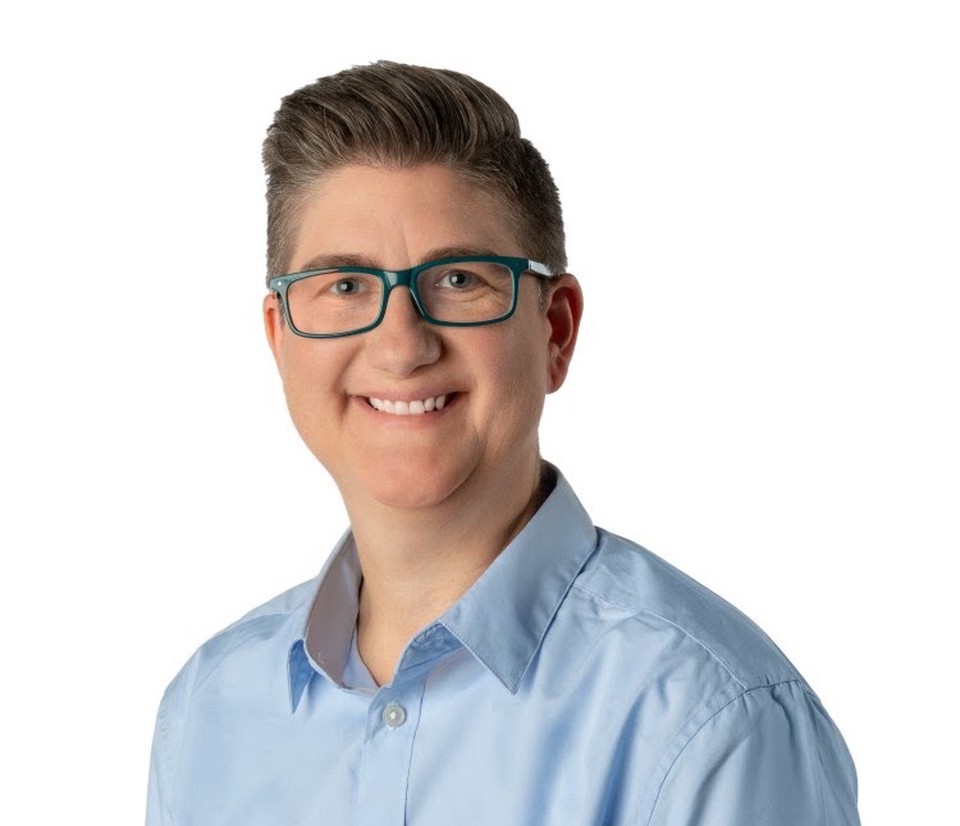Virginia Commonwealth University (VCU) School of Social Work professor Nicole O-Pries has over 20 years of experience developing programs for youth and families exposed to trauma. She has worked in public health organizations in Central Asia, HIV/AIDS service organizations in New York and Washington, D.C., and youth organizations in Virginia.
O-Pries enrolled in the M.S.W. program at the VCU School of Social Work after years of post-undergraduate work with nonprofit organizations. “When I looked at the kind of positions that I’d like to have in this field, I learned that social workers with a Master of Social Work were highly coveted for those positions,” O-Pries says. “So I became really interested in pursuing that. As I was looking for M.S.W. programs, VCU’s social work program was highly ranked and respected,” O-Pries says. “It gave me the opportunity to develop the skills that I needed to do both program development and clinical social work.”
As a licensed clinical social worker, O-Pries now owns a practice that provides telemental health services to LGBTQ+ adults. She continues to help local nonprofit organizations develop trauma-informed care and programming for youth — experience and passion she brings to her role as an associate professor at the VCU School of Social Work.
Addressing Trauma at the Source
After earning her M.S.W. at the VCU School of Social Work, Nicole O-Pries had planned to continue working abroad but soon realized there was important work to be done in the U.S.
“There were so few programs across the U.S. that provided early intervention right after children had experienced trauma,” O-Pries says. “Trauma-informed care — and understanding how trauma affects the mind and body — was beginning to be understood and developed, so it was a very interesting time to begin that work.”
O-Pries started working with a Richmond-area nonprofit organization that provides children’s mental health and development services. As vice president of programs, she developed a program that places mental health clinicians at crime scenes and medical emergencies to support youth and parents.
“When you set up systems to take the neurobiological impact of trauma into account, it can make such a difference,” O-Pries says. “When you help parents understand how their kids might respond to trauma, it normalizes behaviors so that kids aren’t left alone thinking that there’s something wrong with them. And parents don’t punitively respond to those behaviors.”
O-Pries adds, “The development of that trauma response program was one of the most significant contributions that I feel like I’ve made in my work and in my career.”
Providing Affirming and Accessible Services to LGBTQ+ Clients
In 2017, O-Pries launched her own clinical social work practice, providing psychotherapy to LGBTQ+ individuals who’ve experienced trauma and anxiety.
“As part of the LGBTQ+ community, I know the challenges of finding a mental health clinician who is part of the community or has developed the skills to work with the unique needs of individuals in the community, especially with transgender and non-binary clients,” O-Pries says. “I was interested in meeting some of that need.”
O-Pries uses telemental health practice, providing services online through video software. While she was initially dismissive of this method, she soon realized that telehealth was forming the future of clinical work.
“This [online] is where clinical work is happening; this is where mental health services are happening,” she says. “People are seeking these services, and they can be developed by social workers or not, with our knowledge and expertise or without it. It is critical that social workers are engaged in the development of ethical and effective practice in this relatively new way of providing services”
According to O-Pries, telemental health practice can be extremely effective, sometimes even more effective than in-person practice depending on the needs and resources of the client.
“If your clients have trauma and anxiety, traveling to an office and sitting in the waiting room can be difficult,” she explains. “Often, people are more comfortable working online, and they come to more of their sessions. It’s just been remarkable to see how effective this is, and it’s exciting to me that there’s a new way to meet needs.” In her role at VCU, O-Pries has developed opportunities for students to learn more about best practices in telemental health within the clinical practice coursework.
Teaching Through a Trauma-Informed Lens
As an associate professor at the VCU School of Social Work, Nicole O-Pries teaches courses on clinical social work practice, social justice and trauma-informed care.
“I think that it is impossible to do any kind of direct social work practice and not work with people who have experienced trauma,” O-Pries says. “Trauma is pervasive, and the more we understand and implement systems that take that into account, the more effective our social work practice will be.”
Part of understanding trauma’s impact is knowing the context in which that trauma developed.
“True trauma-informed work considers how racism and other forms of discrimination lead to trauma and generations of trauma,” O-Pries says. “If we don’t understand how systems of oppression impact individuals, then we’ll have a lot of difficulty providing clinical services that are effective.”
Although O-Pries spends much of her time teaching, she sees herself as a lifelong student of social work practice, especially as communities and services evolve. O-Pries explains, “You have to have a commitment to lifelong learning to do this work.” She will continue to develop and advocate for telemental health practice, services for the LGBTQ+ community and trauma-informed care.”
Explore a Career in Social Work
The VCU School of Social Work is ranked as a top-16 public school for social work in the nation, according to U.S. News & World Report. The Online Master of Social Work program is designed to equip professional social workers with the skills to take on clinical leadership positions and pursue licensure. Guided by principles of social justice and ethical practice, students receive in-depth training and participate in field experiences to make a difference in the lives of individuals, families and communities.
